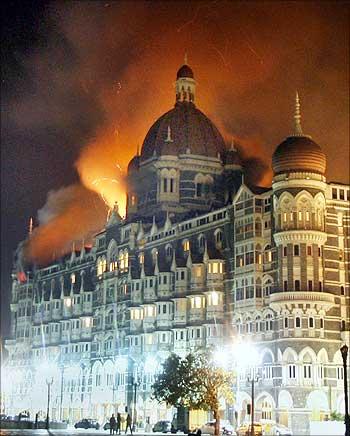
One of the fastest growing sectors in India, the hospitality sector has been hit severely in the last one year. The 26/11 attacks on Mumbai and the fall in demand due to the recession, dented the industry's revenues.
With travel advisories against travelling to India, the number of tourist arrivals dropped. One year after the gruesome attacks, The Oberoi-Trident and the Taj Mahal Hotel, which bore the brunt of the terrorist attacks, have seen occupancy levels go down.
During the last one year after the terror attacks, the Trident has seen occupancy levels drop by 16 per cent. The Oberoi is still not open. Post 26/11, Indian companies have become more aware about security issues. But are the hotels safer now? No, say experts and give their reasons for it too. . .
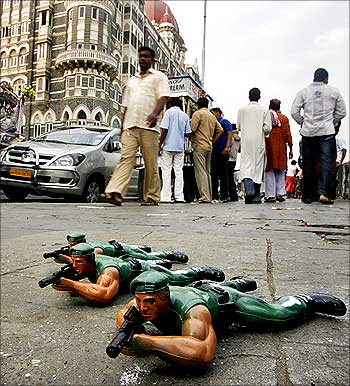
While some hotels are tightlipped about security arrangements, others say the security of the guests is the topmost priority and they are spending more on security, but experts point out that there is still more to be done.
"The biggest threat India Inc faces is from terrorism. The hotel industry is not secure today. Just setting up barricades will not help unless internal security measures are enhanced. The people behind the machines must be well trained," says Shah Amber, consultant (information security management services), Mahindra Special Services Group.
The government spend on security has gone up by 35-50 per cent with the safe cities project and securing of vital installations. Aviation, power, transportation sectors have increased spend on security.
However, the private sector is yet to invest more in security measures, says Pramoud Rao, managing director, Zicom Electronic Security Systems and president, Mumbai Chapter, Fire Safety Association of India.
"The hotels are still not secure. The guards who check the cars do not know anything about explosives, they don't even know if ammonium nitrate is a liquid or a solid. They do not know what RDX is. The security guards and barricades are just to scare innocent people and not the terrorists. There needs to be a change in the Indian mindset. Despite many terrorist attacks, Indians still feel it is too expensive to invest in security," Rao says.
Hotel security is a costly business. Hotels want to remain profitable so they try to spend less on security upgradation.
"Though all good hotels have invested a lot on security and equipment, more can be done. Hotels are doing a business and they need to register profits. Everyone is bound by budgetary constraints, so it is a matter of perception in the eyes of the owners/management as to what is the optimum that can be expended on security systems," says Pramathesh Raina, consultant on hotel and aviation security.
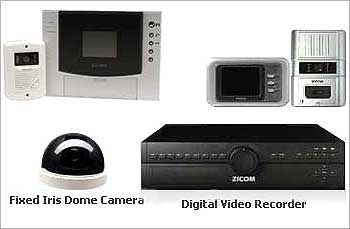
The security equipment market size is pegged between Rs 1,250 and Rs 1,500 crore (Rs 12.50-Rs 15 billion). It is growing at an annual rate of 20 per cent, according to Pramoud Rao.
But this is dismal considering that India is a target of many terror attacks and has a population of over one billion.
Security equipment makers are seeing sales pick up after the recession. Zicom's sales have improved post 26/11 as the government has increased expenditure on CCTV cameras and law enforcement equipment like explosive detectors, etc.
As far as the government is concerned, various steps are being taken. The response time during a crisis has certainly come down. They have enhanced and procured modern equipment, according to Shah Amber.
However, the human factor should never be under-estimated, say experts. "The most sophisticated of equipment is useless in the hands of an ill-trained person. Regular training and periodic rehearsals in emergency response is the key to effective security. I would always prefer to have a trained and motivated guard with the proper security mindset and the basic equipment, rather than an ill-trained or casual person with the state-of-the-art security equipment," Pramathesh Raina explains.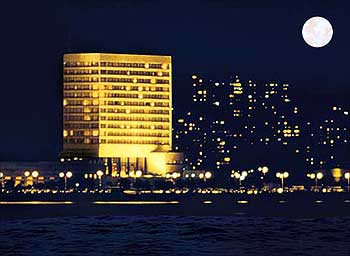
Baggage scanners, hand held devices, increased camera surveillance, regular patrolling and screening of vehicles are taking place. The spend on security has been increased by Rs 40 lakh (Rs 4 million). However, preventing terror attacks is primarily the responsibility of the state law enforcement agencies," says Kanan Udeshi, manager (communications), The Oberoi Group.
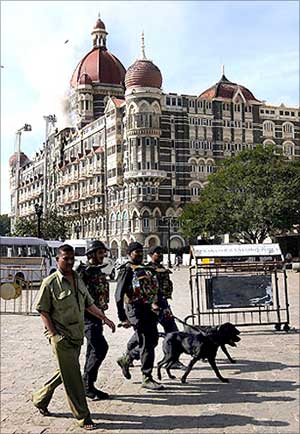
At the Taj Mahal Palace & Tower in Mumbai, the entire portico is cordoned off with just a small makeshift gate to one corner guarded by security personnel.
"You can no longer drive into the Taj Palace Hotel portico, you have to stop the vehicle on the road and get in through this gate. The portico has turned into a security checkpoint. However, at the Taj President you can drive till the portico," says a visitor.The Taj officials declined to give details of security arrangements. "We cannot elaborate on the measures taken as it would be breach of security. We have moved on, our guests are positive and have come back," says Nikhila Palat, spokesperson, The Taj Group.
"The job of the security staff at the hotel is much more difficult than in any other industry. This is because he has to present a polite and welcoming demeanour and yet has to deter criminals and persons of questionable intent from entering the hotel. Security cannot be so overbearing that it discourages guests from patronising the hotel, yet it has to be overt enough to make a guest feel secure," says Pramathesh Raina.
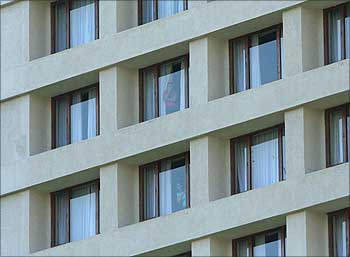
They point out that the background checks on employees are not done properly. "Considering the fact that employees could collude with miscreants, background checks on all the employees must be done. It is not stringent yet," says Shah Amber.
The service entry to the hotels, through which food, water, etc are supplied are not safe, Rao adds.
"Till 26/11 happened, most hotels were complacent and of the opinion that the security in place was adequate. The security department was not accorded the importance due to them and security staff was mostly treated as poor relations. This treatment resulted in poor morale and motivation. The requests for upgradation of security and alarm systems were invariably not accorded the seriousness they merited, because the management was not convinced of their necessity. The budget for the security was always a small percentage of the whole," explains Pramathesh Raina.
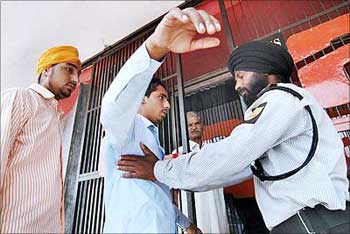
Meanwhile, the demand for security guards has gone up since 26/11. The private security industry employs 60 lakh (6 million) security guards across India.
"Maharashtra has about 3 lakh (300,000) private security guards with Mumbai and Thane accounting for 1.5 lakh (150,000) private security guards. There has been more demand for security guards from malls and hotels. But training them is the prerogative of the companies. We now face a shortage of about 30 per cent," says Gurcharan Singh Chauhan, president, Security Association of India.
People tend to forget easily, and they have started going back to the hotels. No one questions the security arrangements till another mishap occurs, says a media professional.
"Hotels have to control each and every process. Steps have to be taken to ensure that the identity of the guests is not known to others," Shah says.
"The hotels are not 100 per cent secure but they have invested more in security equipment. Companies should make sure that they use good quality equipment and not go for Chinese products," Gurucharan Singh says.